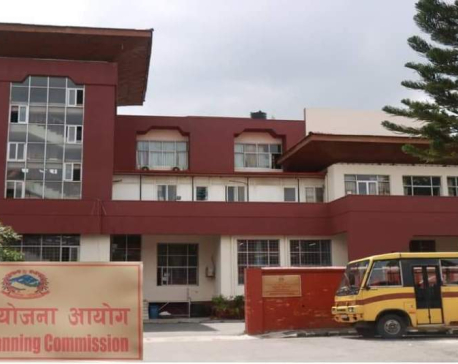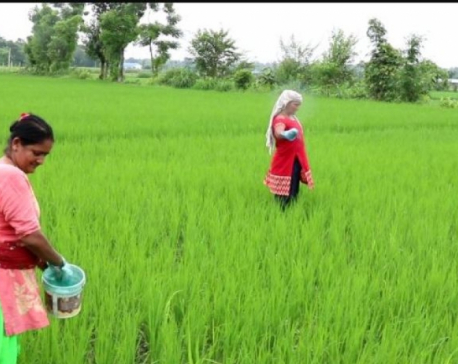
OR
NPC study opposes foreign investment in primary sector of agriculture
Published On: December 26, 2022 10:30 AM NPT By: Republica | @RepublicaNepal

KATHMANDU, Dec 26: A study conducted by the National Planning Commission (NPC) has suggested to restrict foreign investment in the primary sector of agriculture.
The study report on 'foreign investment potential in agriculture, 2022' released last Thursday suggested the government to not bring in foreign investment in agricultural products. However, it can be used for storage, processing and marketing.
"There is no need to bring in foreign direct investment in the primary sectors of agriculture. Nepal's banks have adequately floated loans for this and the government has also continued discounting tax. There are also other policy benefits," the report mentioned, arguing that as the companies working in the primary sector of agriculture are not listed in Nepal Stock Exchange, such companies are in need of search for foreign investment.
In such a situation, it is not logical to float foreign investment in the agriculture sector. However, it can be entertained for processing, storage and marketing to add value to the agricultural products. The foreign direct investment is essential in cold storage, canning, processing, mill etc. With this, a separate regulation is necessary on foreign direct investment in these sectors.
The regulation to be framed to govern the foreign direct investment in secondary sectors of agriculture should clearly mention the area where the investment is permitted, according to the study report. Similarly, how the investors would enjoy the rights as ownership of foreign land here needs to be addressed clearly. The rights and benefits of farmers should also be incorporated in the regulation.
In recent years, the agriculture sector has had a declining contribution to GDP in Nepal. Although 66 percent of the population is said to have dependence on agriculture, the production in this sector is not up to the mark.
Two years ago, the government had decided to allow foreign investment in agriculture, but the Supreme Court had issued an interlocutory order asking the government to not implement the decision. The case is sub judice at the Supreme Court.
(RSS)
You May Like This

Govt’s spending on debt servicing to increase by Rs 106 billion in the next FY: NPC
KATHMANDU, April 3: The government is preparing to allocate Rs 436 billion to pay the interest and for the repayment... Read More...

Nepal’s agriculture lost more than 12 billion rupees during pandemic
KATHMANDU, Dec 6: A government study has shown that the pandemic has caused about Rs 12 billion losses in agriculture... Read More...

Minister Pokharel urges to invest in agriculture and tourism
DOLAKHA, July 3: Minister for Culture, Civil Aviation and Tourism Ananda Prasad Pokharel has urged investors to invest in agriculture... Read More...




Just In
- Govt receives 1,658 proposals for startup loans; Minimum of 50 points required for eligibility
- Unified Socialist leader Sodari appointed Sudurpaschim CM
- One Nepali dies in UAE flood
- Madhesh Province CM Yadav expands cabinet
- 12-hour OPD service at Damauli Hospital from Thursday
- Lawmaker Dr Sharma provides Rs 2 million to children's hospital
- BFIs' lending to private sector increases by only 4.3 percent to Rs 5.087 trillion in first eight months of current FY
- NEPSE nosedives 19.56 points; daily turnover falls to Rs 2.09 billion















Leave A Comment